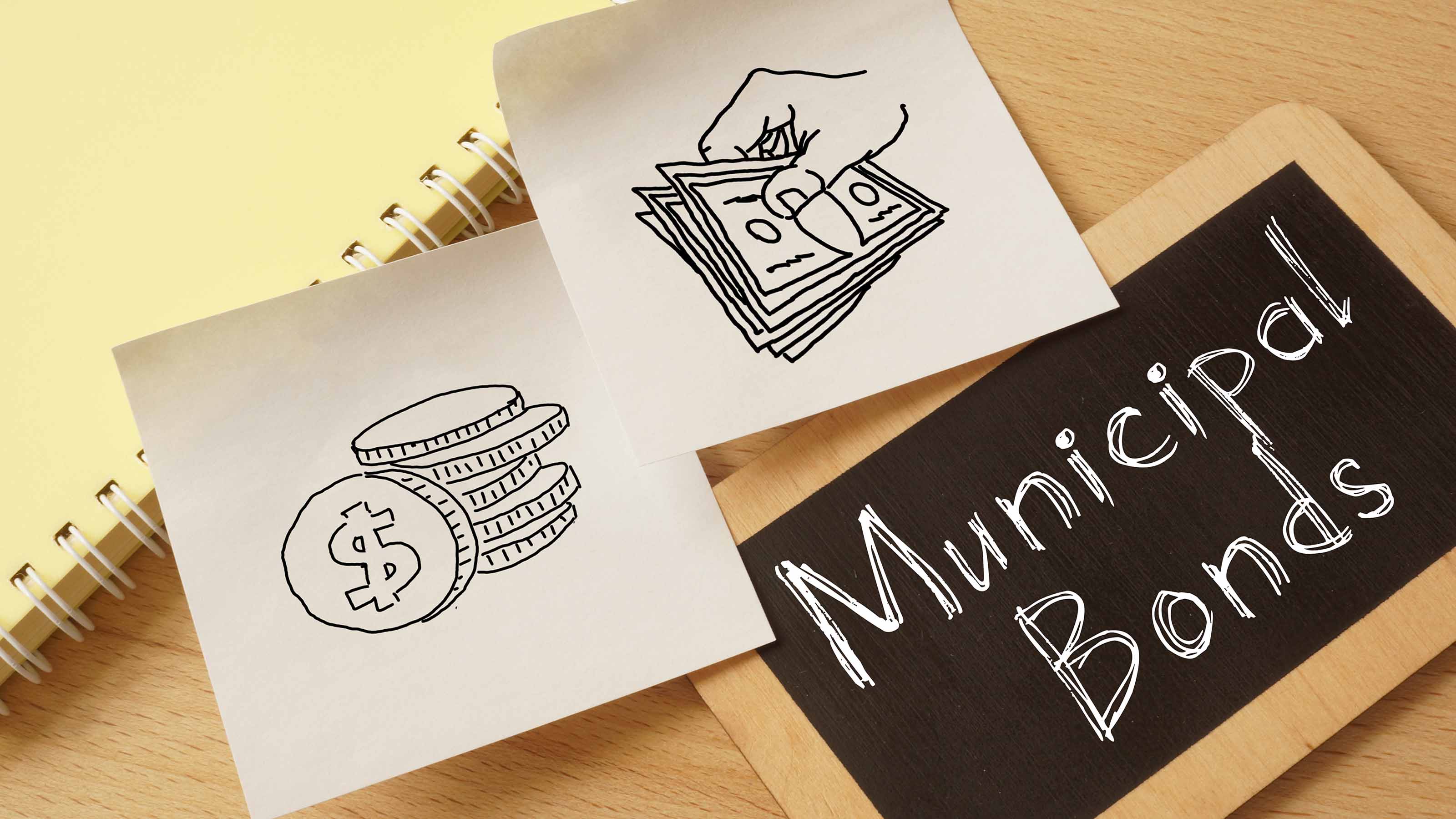Wall Street Is Wrong on REITs
Coming interest-rate hikes are creating a frenzy. Maybe investors should just chill.

Profit and prosper with the best of Kiplinger's advice on investing, taxes, retirement, personal finance and much more. Delivered daily. Enter your email in the box and click Sign Me Up.
You are now subscribed
Your newsletter sign-up was successful
Want to add more newsletters?

Delivered daily
Kiplinger Today
Profit and prosper with the best of Kiplinger's advice on investing, taxes, retirement, personal finance and much more delivered daily. Smart money moves start here.

Sent five days a week
Kiplinger A Step Ahead
Get practical help to make better financial decisions in your everyday life, from spending to savings on top deals.

Delivered daily
Kiplinger Closing Bell
Get today's biggest financial and investing headlines delivered to your inbox every day the U.S. stock market is open.

Sent twice a week
Kiplinger Adviser Intel
Financial pros across the country share best practices and fresh tactics to preserve and grow your wealth.

Delivered weekly
Kiplinger Tax Tips
Trim your federal and state tax bills with practical tax-planning and tax-cutting strategies.

Sent twice a week
Kiplinger Retirement Tips
Your twice-a-week guide to planning and enjoying a financially secure and richly rewarding retirement

Sent bimonthly.
Kiplinger Adviser Angle
Insights for advisers, wealth managers and other financial professionals.

Sent twice a week
Kiplinger Investing Weekly
Your twice-a-week roundup of promising stocks, funds, companies and industries you should consider, ones you should avoid, and why.

Sent weekly for six weeks
Kiplinger Invest for Retirement
Your step-by-step six-part series on how to invest for retirement, from devising a successful strategy to exactly which investments to choose.
Sometimes Wall Street reminds me of my late border collie, Patch. A story in the Wall Street Journal once described border collies, which are incredibly intelligent animals that are born to herd, as “obsessive-compulsive workaholics.” Just as the stock market typically leads the economy—that is, share prices tend to turn down before a recession and start to rebound before a recovery—border collies want to lead their flock, whether it consists of sheep, cows or people, in a decisive and orderly way.
But because we had no sheep, Patch was always trying to lead me and my kids. We, of course, had minds of our own and went our own way. That left Patch looking over his shoulder and jumping to switch direction so he could stay ahead of us. Every once in a while, he’d look back at me soulfully as if to say: “I could lead you so much better if you’d just tell me where the heck you’re going.”
I imagine Wall Street feels much the same about Federal Reserve Chair Janet Yellen. If only she would clearly state where the Fed was going and what, specifically, it plans to do about short-term interest rates, Wall Street could lead investors in a decisive and orderly way. But because she hasn’t, investors keep changing course. The result is that share prices—including, surprisingly, those of stocks with high dividend yields—have been jumping around like pogo sticks. As my son used to say to Patch, “You need to chill out, dude.”
From just $107.88 $24.99 for Kiplinger Personal Finance
Become a smarter, better informed investor. Subscribe from just $107.88 $24.99, plus get up to 4 Special Issues

Sign up for Kiplinger’s Free Newsletters
Profit and prosper with the best of expert advice on investing, taxes, retirement, personal finance and more - straight to your e-mail.
Profit and prosper with the best of expert advice - straight to your e-mail.
Why would I want Wall Street to chill? Because the Street, which is in a tizzy over coming interest-rate hikes that are likely to be far more restrained than the pessimists expect, is putting undue pressure on share prices of real estate investment trusts. I like REITs because they are required to distribute at least 90% of their earnings as dividends, so they provide shareholders with a lot of income. I own three of them in my Practical Investing portfolio: Apollo Commercial Real Estate Finance (symbol ARI, $16, yield 11.2%), Starwood Property Trust (STWD, $21, 9.4%) and Starwood Waypoint Residential Trust (SWAY, $24, 3.2%), which Starwood Property spun off in 2014.
Even before the onset of the stock market correction, REITs were having a rough year. Shares of property-owning REITs began to slide in late January, four months before Standard & Poor’s 500-stock index peaked. In the first nine months of 2015, property-owning REITs lost 3.8%, on average, and REITs that invest in mortgages, as Apollo and Starwood Property do, surrendered 7.9%, on average (the figures include dividends). REIT performance wasn’t dramatically out of line with the overall stock market; the S&P 500 has lost 5.3%, year to date. (All prices and returns are through September 30.)
Rate fears. With their high dividend yields, you might think real estate stocks would have held up better. They haven’t because investors are worried about the Fed’s impending rate hikes and how they would affect high-yielding investments, including REITs. After all, if rates rise sharply, such safe investments as money market funds will pay more and will make REITs seem less attractive. Moreover, because real estate companies borrow money to finance their purchases, rising rates would also likely squeeze their profit margins.
The economy, though, is not growing robustly enough to warrant dramatically higher interest rates. Yellen and crew will probably raise short-term rates by 0.25 percentage point this year, but it may take a while before the Fed pulls the trigger again. In the meantime, such a measly hike won’t provide much competition for my high-yielding REITs, so it looks as if Wall Street is overreacting. We never let Patch lead us astray; you shouldn’t let Wall Street lead you down the wrong path, either.
Profit and prosper with the best of Kiplinger's advice on investing, taxes, retirement, personal finance and much more. Delivered daily. Enter your email in the box and click Sign Me Up.

-
 How Much It Costs to Host a Super Bowl Party in 2026
How Much It Costs to Host a Super Bowl Party in 2026Hosting a Super Bowl party in 2026 could cost you. Here's a breakdown of food, drink and entertainment costs — plus ways to save.
-
 3 Reasons to Use a 5-Year CD As You Approach Retirement
3 Reasons to Use a 5-Year CD As You Approach RetirementA five-year CD can help you reach other milestones as you approach retirement.
-
 Your Adult Kids Are Doing Fine. Is It Time To Spend Some of Their Inheritance?
Your Adult Kids Are Doing Fine. Is It Time To Spend Some of Their Inheritance?If your kids are successful, do they need an inheritance? Ask yourself these four questions before passing down another dollar.
-
 What Fed Rate Cuts Mean For Fixed-Income Investors
What Fed Rate Cuts Mean For Fixed-Income InvestorsThe Fed's rate-cutting campaign has the fixed-income market set for an encore of Q4 2024.
-
 The Most Tax-Friendly States for Investing in 2025 (Hint: There Are Two)
The Most Tax-Friendly States for Investing in 2025 (Hint: There Are Two)State Taxes Living in one of these places could lower your 2025 investment taxes — especially if you invest in real estate.
-
 The Final Countdown for Retirees with Investment Income
The Final Countdown for Retirees with Investment IncomeRetirement Tax Don’t assume Social Security withholding is enough. Some retirement income may require a quarterly estimated tax payment by the September 15 deadline.
-
 Dividends Are in a Rut
Dividends Are in a RutDividends may be going through a rough patch, but income investors should exercise patience.
-
 Municipal Bonds Stand Firm
Municipal Bonds Stand FirmIf you have the cash to invest, municipal bonds are a worthy alternative to CDs or Treasuries – even as they stare down credit-market Armageddon.
-
 High Yields From High-Rate Lenders
High Yields From High-Rate LendersInvestors seeking out high yields can find them in high-rate lenders, non-bank lenders and a few financial REITs.
-
 Time to Consider Foreign Bonds
Time to Consider Foreign BondsIn 2023, foreign bonds deserve a place on the fringes of a total-return-oriented fixed-income portfolio.
-
 The Five Safest Vanguard Funds to Own in a Volatile Market
The Five Safest Vanguard Funds to Own in a Volatile Marketrecession The safest Vanguard funds can help prepare investors for market tumult but without high fees.